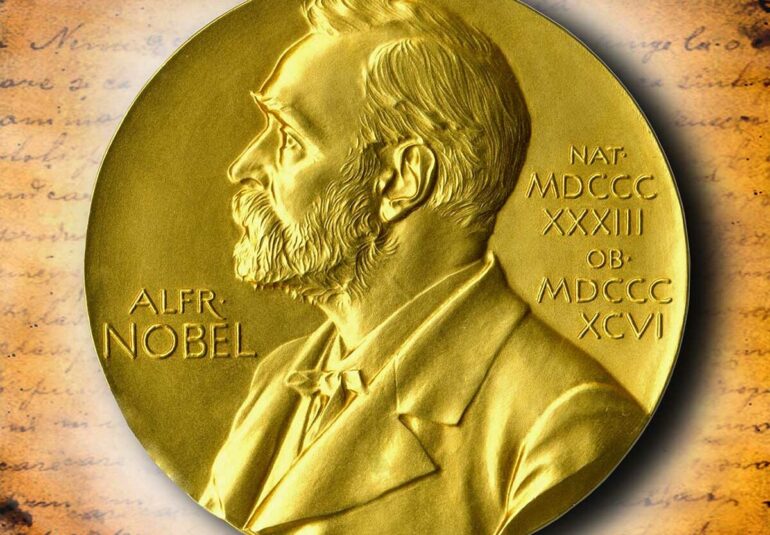Many scholars argue for the Nobel Prize’s continued status as “the world’s most prestigious honor”—a combination of history, process, impact, and history.
Every year, the month of October holds special significance for communities, writers, and social theorists around the world. The Nobel Prize is awarded by the United Nations to honor individuals who have contributed to the development of humanity and society, ranging from science to literature and peace to economics.
The Origin and History of the Nobel Prize
Alfred Nobel’s Will
In his will of 1895-1896, Alfred Nobel instructed that his greatest wealth be given to those who would bring the “greatest benefit.”
This “welfare of humanity” lies at the foundation of this award.
The Foundation and Destination of the Selection Process
In-Depth Selection Analysis
The Nobel Prize Club (the organization that awards these awards) considers four criteria after studio research. Expert opinion is sought, and a thorough assessment of scientific, scientific, and social impact is made.
Nomination Process
Media scholars, former Nobel Prize winners, university and academy members, etc. in various fields have the right to nominate. Self-nomination is not possible. This ensures relevant content.
Security and Time-Tested
The decision process (nomination and deliberation) is highly trusted, and the assessment of any work requires in-depth, lasting, and widespread impact. This reduces the likelihood of the award being influenced by “instant exceptionalism” or “fashion trends.”
International Principles Since the Beginning
Since 1901, the Nobel Prizes have been awarded globally, transcending borders; scholars, peace experts, writers, and others from various countries have been honored. This was not limited to Sweden, Norway, or Europe.
The beginning of October brings the world’s attention to a prize that every scientist, writer, and philanthropist dreams of receiving. These awards are announced annually, and this year (the Nobel Prize 2025) will begin on October 6th and conclude on October 13th, honoring the world’s most prestigious achievements in the fields of medicine, physics, chemistry, literature, peace, and economics.
A Story That Began with the Vision of an Inventor
The story of the Nobel Prize began with the scientist, inventor, and industrialist Alfred Nobel, who gave the world dynamite. However, this discovery plunged him into critical stagnation. Later, Nobel decided that his wealth should be used for workers.
In keeping with this idea, he wrote in his will that the prize be awarded annually to those who make the “greatest contribution to humanity” in the fields of science, literature, or peace. The Nobel Prize was first awarded in 1901, and this tradition continues every year.
How are the Nobel Prizes selected?
The Nobel Prize selection process has always been a subject of curiosity. Individual nominees cannot submit their own nominations. Nominations can only be submitted by a qualified or expert. And most interestingly, these discussions and nominations have been kept secret for 50 years.
Science prizes have a classic eligibility criteria. No discovery is awarded until it is proven to have lasting benefits to human life. Meanwhile, the Peace Prize repeatedly conveys messages relevant to current and global crises.
The medal is not merely a symbol of honor.
The Nobel Prizes have no global recognition, but they also carry the following rewards:
11 million Swedish kronor (approximately ₹10 crore),
an 18-carat gold medal, and
an official position.
A single prize may often be shared between three laureates, but the true prize is the one who presents their hard work, thinking, and contributions to the entire world.
A Changing Meaning Over Time
The Nobel Prize is not just a part of history; it is also a mirror of the present. In recent years, COVID vaccines, climate change, women’s education, and global shelters have been recognized. These awards are not merely a solemn recognition, but also represent the most serious challenges facing humanity today.
Why is it so special even today?
The Nobel Prize is a symbol of prestige because it symbolizes not only achievement, but also a title and responsibility. It reminds us that the fundamental purpose of knowledge and innovation is not merely discovery, but a call to society.
Nobel’s will states the goal of “bringing the greatest benefit to humanity”; contributions in the fields of peace, literature, science, etc. are not only technical, but also social, moral, and religious.
For more than a century, the Nobel Prize has conveyed the message that true greatness lies not in power or wealth, but in ideas that improve the world. The Nobel Prize is not just an honor; it symbolizes faith in humanity.

